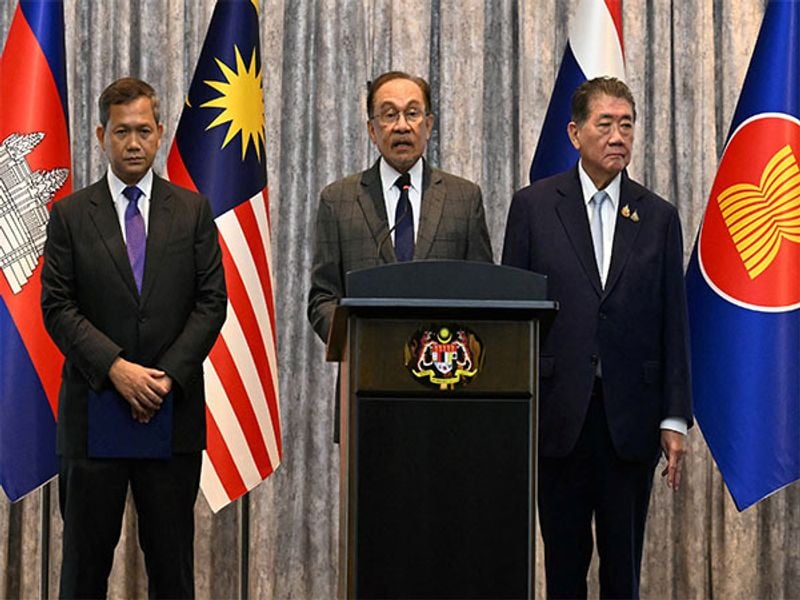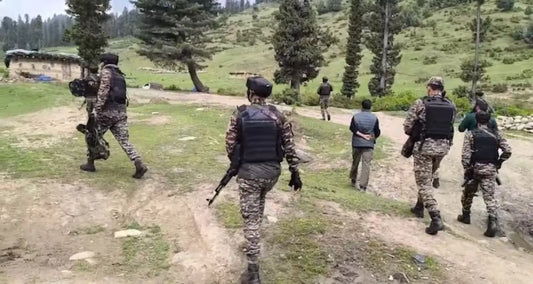Thailand and Cambodia Reach Ceasefire Agreement Following Intense Border Clashes

After several days of intense border clashes, Thailand and Cambodia have reached an agreement for an "immediate and unconditional" ceasefire. The announcement came from Malaysian Prime Minister Anwar Ibrahim, who stated that the ceasefire would commence at 1700 GMT on July 28. This development follows urgent mediation discussions held in Putrajaya, Malaysia's administrative capital.
The talks involved Cambodian Prime Minister Hun Manet and Thailand's acting Prime Minister Phumtham Wechayachai, with Anwar Ibrahim serving as the chief mediator. The ceasefire represents a significant diplomatic effort to halt a conflict that has resulted in at least 35 deaths and displaced over 270,000 civilians from both nations.
Prime Minister Anwar, alongside the two leaders at a press conference, expressed optimism about the positive outcomes of the negotiations, which he believes bode well for both Cambodia and Thailand. A follow-up meeting is set for Tuesday, where military commanders from the two countries will convene to ensure adherence to the ceasefire.
Despite ongoing artillery fire and rocket exchanges along the border, the high-level negotiations took place. Al Jazeera's correspondents reported continued shelling and gunfire, particularly near Cambodia's Oddar Meanchey and Thailand's Sisaket provinces, which have both experienced significant military activity in recent days.
Thailand accused Cambodian forces of occupying disputed temple sites and launching rockets into its territory. On Sunday, a Cambodian rocket attack resulted in the death of one Thai civilian and injured another in Sisaket province. In response, Cambodia's Ministry of National Defence accused Thailand of deploying smoke bombs from aircraft and shelling areas near the Ta Muen Thom and Ta Kwai temples.
Following the discussions, Cambodian Prime Minister Hun Manet expressed hope that the ceasefire would lead to "rebuilding trust and confidence." He also acknowledged the role of former US President Donald Trump in facilitating the dialogue, alongside support from Chinese leadership.
Thailand's acting Prime Minister Phumtham, who had previously questioned Cambodia's intentions, confirmed Thailand's dedication to the ceasefire, stating that it would be implemented in good faith by both parties.
Amid growing international concern over the escalating conflict, the ceasefire agreement highlights the global urgency to stabilize the situation in the strategically important and economically vital Southeast Asian region. The presence of US and Chinese ambassadors at the negotiations in Malaysia emphasized the international community's vested interest.
Tensions remain high, particularly around disputed temple zones, but the ceasefire has ignited hope among displaced civilians residing in makeshift shelters across the Thai border. "There are so many people who just want to go home," reported Al Jazeera’s Tony Cheng from Thailand’s Surin province.
As military commanders from both nations prepare for further discussions, the international community closely observes whether this truce will achieve lasting peace or merely serve as a temporary halt to a conflict with deep-rooted historical tensions.



















